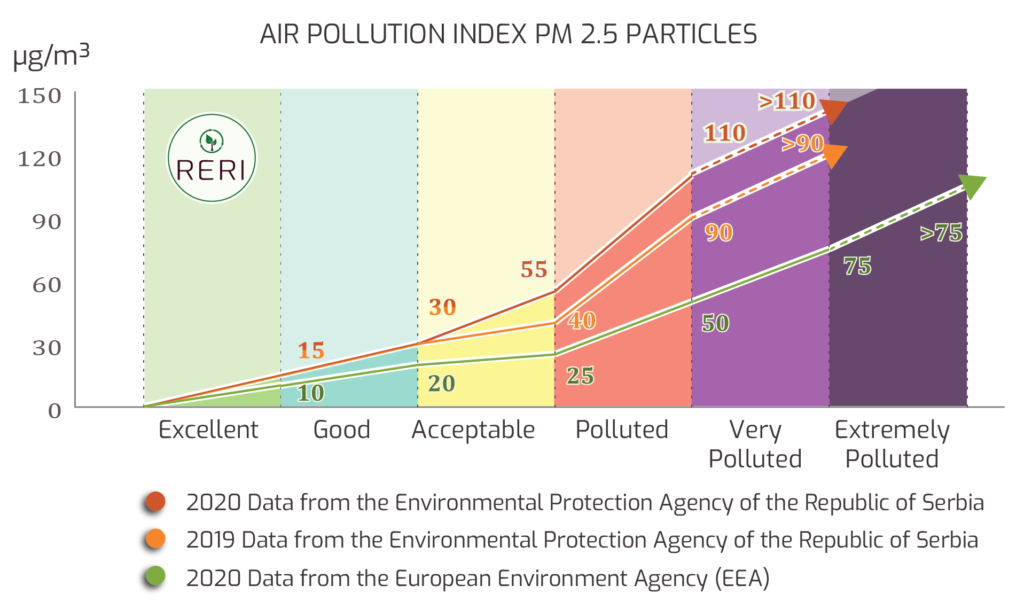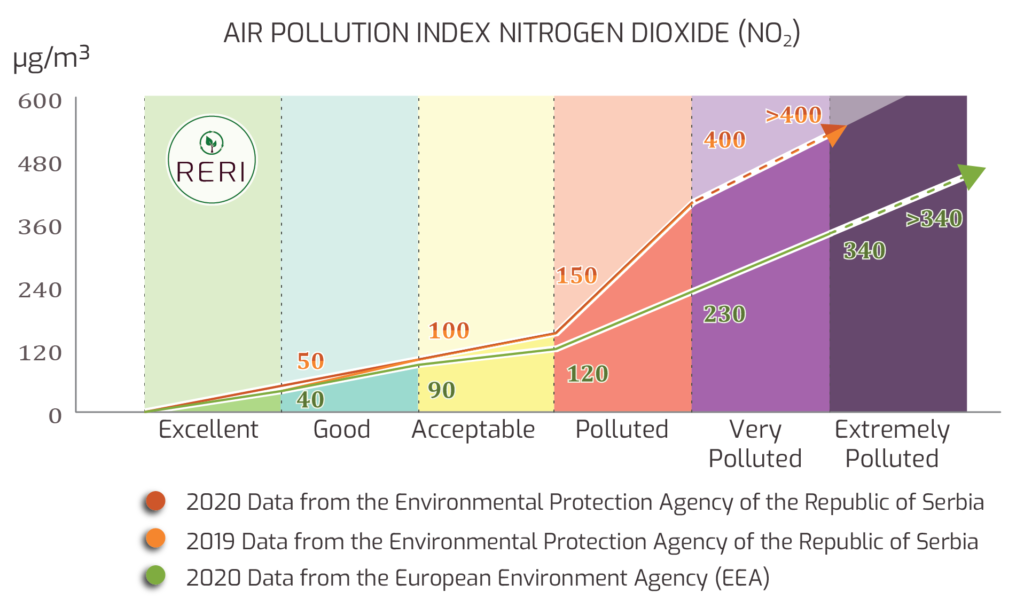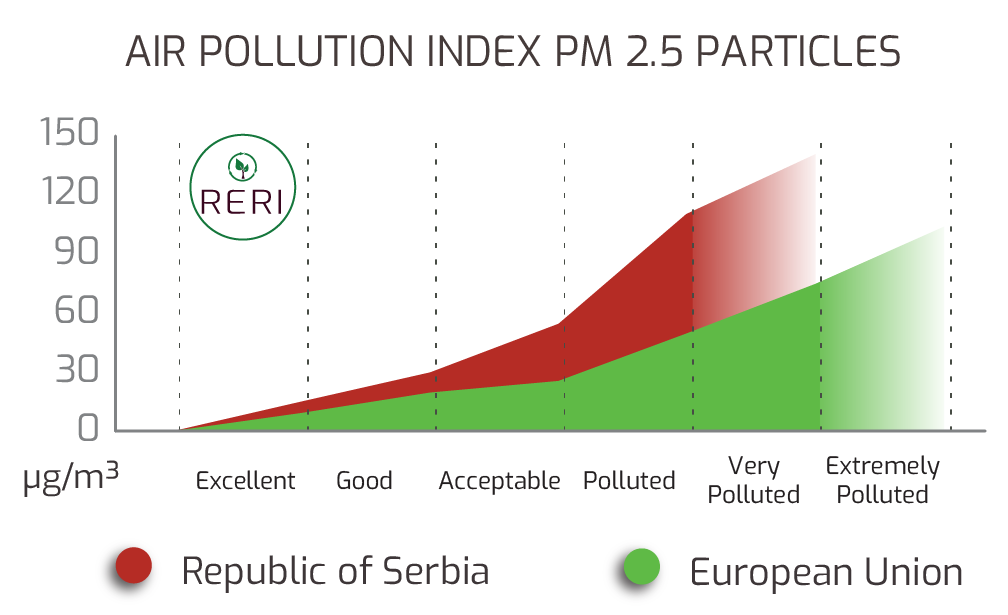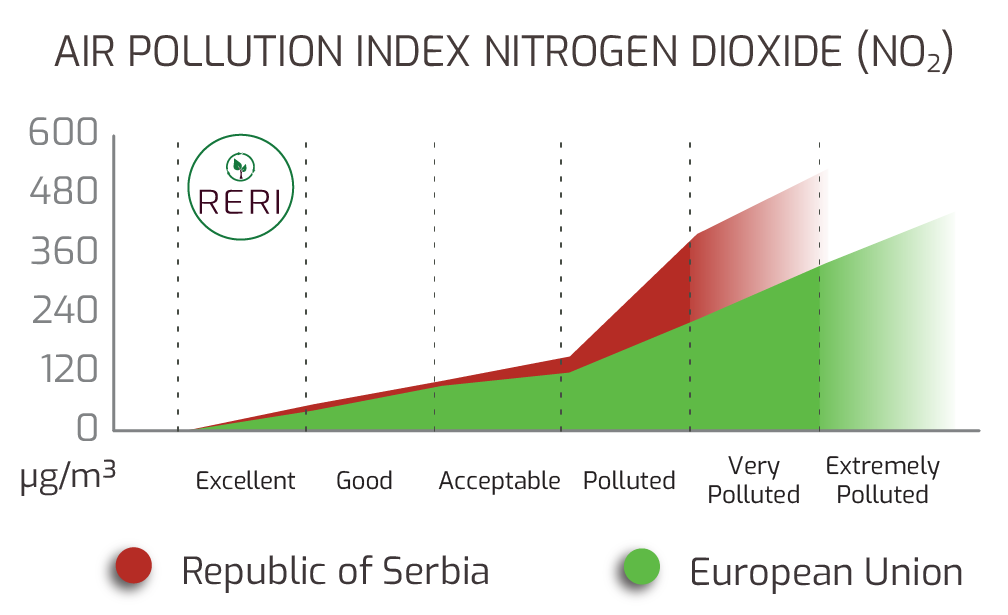The Environmental Protection Agency regularly publishes air quality assessments on its website. It does so on the basis of certain criteria.
However, the criteria that you can find today on the Agency’s website differ from those presented to citizens in the Report of the Environmental Protection Agency published on September 7, 2020.
Thus, due to the increasement of the upper limits, the air containing over 40 μg/m3 PM 2.5 particles is no longer considered “polluted” but “acceptable”. Likewise, if the air contains 50,0001 μg/m3 of nitrogen dioxide (NO2), it is now considered “excellent”, not just “good”.

Why did the Environmental Protection Agency decide to change these criteria?
Based on which regulations?
RERI and BOS (Belgrade Open School) hereby point to the criteria for air quality assessment applied by the European Environment Agency (European Union agencies), which differ significantly from the criteria used by the Environmental Protection Agency, of which Serbia is a cooperating state.
Namely, in 2019, the air in all agglomerations (Belgrade, Novi Sad, Niš, Bor, Užice, Kosjerić, Smederevo and Pančevo) was excessively polluted due to the high concentration of PM10 and (or) PM 2.5 particles, a comparative overview criteria for these particles- is presented below.

Particulate matter with a size of less than 2.5 micrometers are known as PM 2.5 particles. According to the World Health Organization, these particles, due to their size, pose a great danger to health, because they stay in the air for a long time and can penetrate into the bloodstream and lungs, where they cause major health problems. According to the latest report – The State of Global Air 2020, air pollution was the fourth leading risk factor for premature death in the world, accounting for almost 12% of all deaths, with more than 6.67 million in 2019 alone.
In Serbia, according to the data of the World Health Organization, due to exposure to an excessive concentration of PM2.5 particles, 3585 inhabitants of Serbia died prematurely, half of which were citizens of Belgrade.
We find it interesting that a “new-old” report appeared on the agency’s website, which lacks the information that the results of automatic monitoring from the local network of the City of Belgrade were not submitted to the Agency despite several requests, to which RERI and BOS have already pointed..png)
Why did the Agency change the criteria for air quality assessment?
Why did the Agency delete data related to Belgrade from the report?
- Belgrade Open School
- Renewables and Environmental Regulatory Institute
Photo source: canva.com
